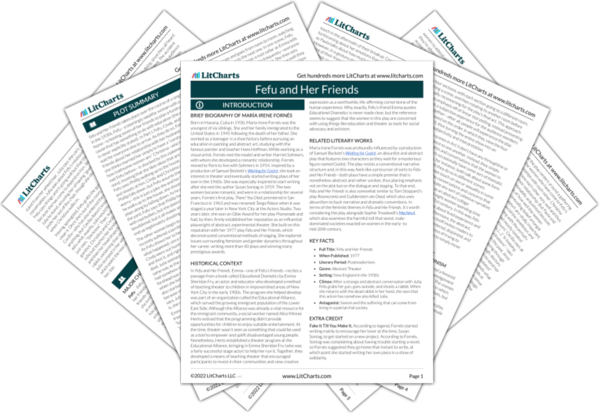The final moments of
Fefu and Her Friends are highly abstract and hard to translate into any sort of straightforward analysis. However, there
is a circularity at play here, since Julia’s strange death recalls her initial injury. In both cases, Julia gets shot without actually getting shot. Broadly speaking, this is possibly a representation of the ways in which certain kinds of violence and suffering are inescapable, especially for women living in antagonistic, sexist societies. On another level, though, Julia’s death seems to be a sacrifice of sorts—she has tried to warn Fefu about the “judges” and the kind of torturous suffering coming her way, and she has now paid the price by dying. But in doing so, it is feasible—according to the play’s strange internal logic—that she has saved Fefu, effectively breaking the rules set by the “judges” in order to help her friend escape the same miserable fate that she herself has been forced to endure. In turn, the play becomes an abstract examination of friendship, sacrifice, and support—an idea underscored by the fact that all of Julia’s friends slowly gather around her as the stage lights dim.


